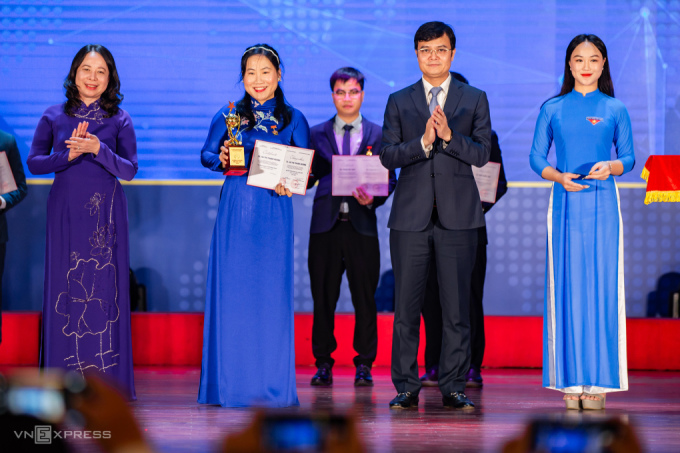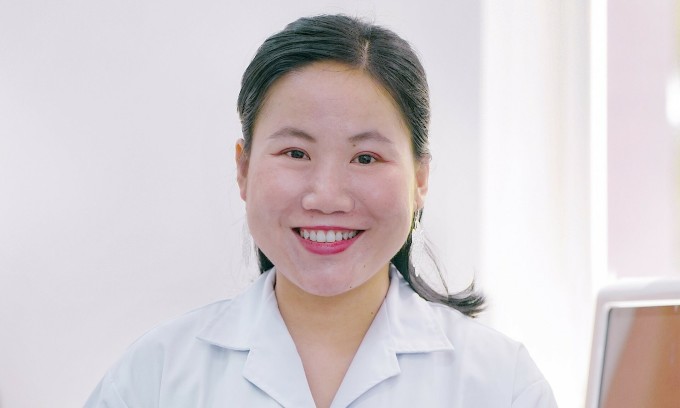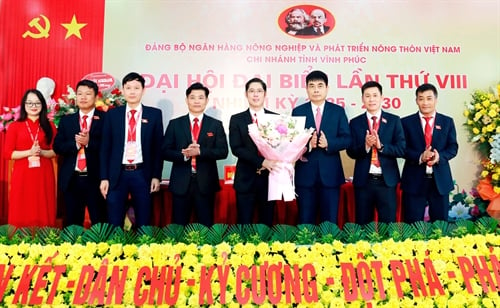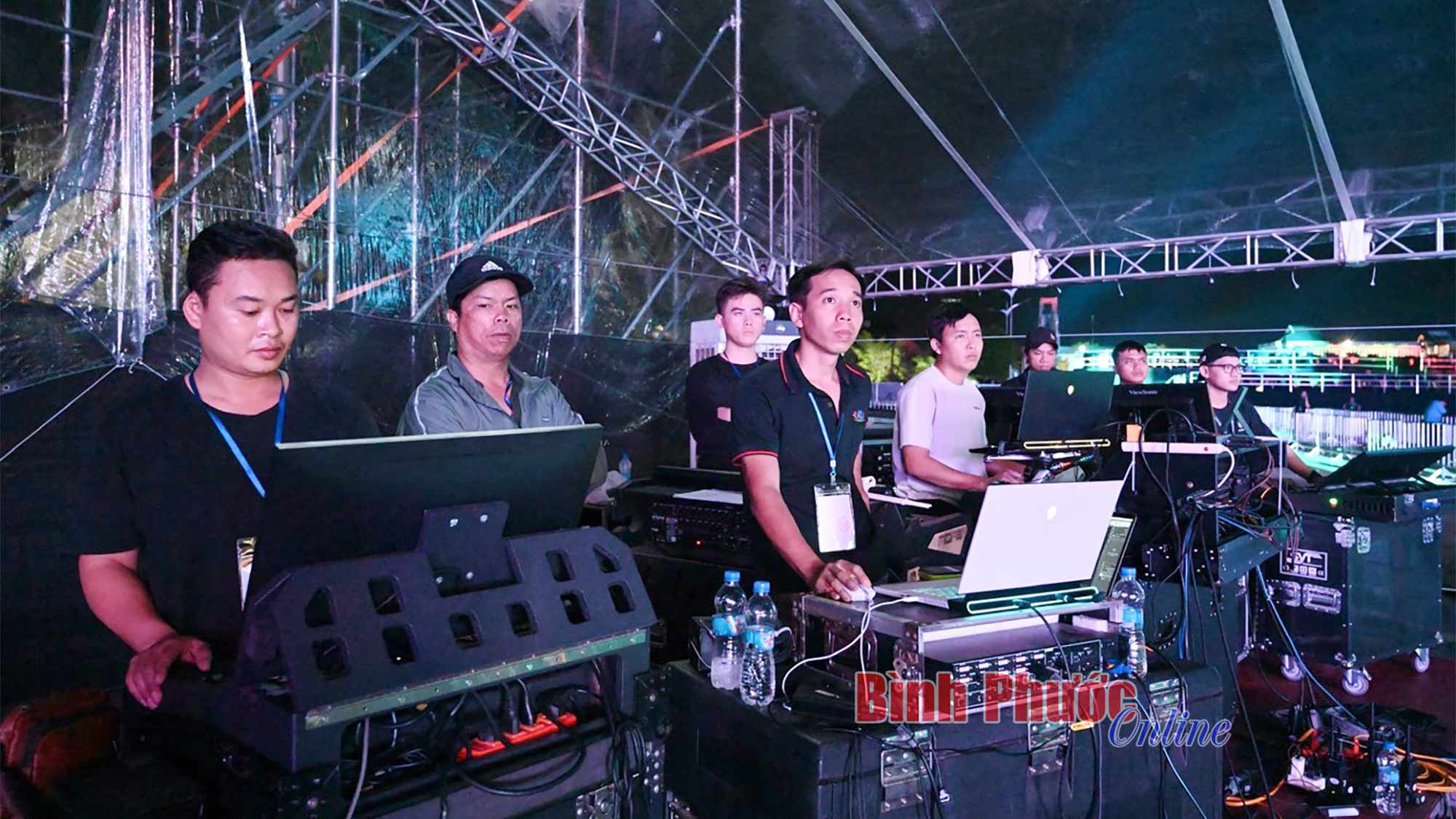After graduating with a PhD from Stanford University, USA, Ms. Thanh Huong chose to return to Vietnam to do research and won a series of awards.
Dr. Ha Thi Thanh Huong, 35 years old, Head of the Department of Tissue Engineering and Regenerative Medicine, Faculty of Biomedical Engineering, International University, Vietnam National University, Ho Chi Minh City, was named in four awards in 2023: Golden Globe, National Outstanding Teacher, Women of the Future Southeast Asia 2023 and Outstanding Young Citizen of Ho Chi Minh City.
Ms. Huong compared 2023 to a year of harvest after a period of planting and fertilizing. These are achievements accumulated over a long period of research and teaching, not achieved overnight.
"I am very happy to be recognized in many prestigious awards, the judges are leading experts in the field. This achievement has the mark of many teachers, colleagues, and students in the Faculty of Biomedical Engineering", Dr. Huong shared.

Dr. Ha Thi Thanh Huong received the 2023 Golden Globe Award. Photo: Tung Dinh
Born into a family with parents who were Biology and Chemistry teachers, Huong had a smooth time studying natural sciences, especially Biology. During her high school years at the Gifted High School, when she followed a relative who suffered from depression to a psychiatric hospital, she realized the limitations of the mental health care system in Vietnam. From there, she had the idea of improving this situation.
In 2007, Ms. Huong was admitted to the Biotechnology major at the University of Natural Sciences, Ho Chi Minh City National University. She indulged her passion by acquiring a lot of knowledge about molecular biology, stem cells, biotechnology and became the valedictorian of the major after four years.
After graduating, she worked for 6 months as an assistant for a research group on HIV/AIDS-related dementia at the Oxford University Clinical Research Center (OUCRU) in Vietnam. During this time, Ms. Huong applied for a VEF (Vietnam Education Foundation) scholarship to study at Stanford University in the US. Not only did she pass the scholarship, she also received a scholarship from a Stanford University alumni, becoming a PhD student in Neuroscience, focusing on autism research.
She had a difficult time studying for a PhD in the US because her major was different from her university studies. Combined with the language barrier, it took Ms. Huong a long time to adapt.
"The teachers at the University of Natural Sciences showed me the passion for research. When I went to Stanford University, I was trained to have the courage to follow this path," said Dr. Huong.
In 2018, Ms. Huong graduated and chose to return to work at the Faculty of Biomedical Engineering, International University. For her, giving up opportunities in the US and returning home was not a difficult decision because before studying abroad, she had set a goal to return and change the way many people understood mental health.
"You can't just meet a depressed person or an anxiety patient and tell them to be less sad or less worried. They really can't do that," said Dr. Huong.

Dr. Ha Thi Thanh Huong. Photo: HCMIU
When she first returned to Vietnam, Dr. Ha Thi Thanh Huong spent a lot of time building relationships with doctors and hospitals to develop her mental health research ideas. She diligently attended scientific conferences, interacted with colleagues and experts, and invited them to research together. She also learned more about clinical problems, gave research directions, and created products to support doctors and patients.
From initial surveys, Dr. Huong identified two major mental health problems that could be solved based on the knowledge she had learned, including: stress-related diseases and Alzheimer's (a brain disease that causes memory loss and thinking ability). In 2018, starting to work on problems of improving brain function, Dr. Huong established the Brain Health Lab research group with colleagues, graduate students and students.
Dr. Huong found that Alzheimer's is one of the diseases that causes the highest mortality in the elderly. In the context of an aging population in Vietnam, research on this disease becomes urgent.
The team has successfully developed Brain Analytics software - analyzing MRI images of patients' brains and diagnosing Alzheimer's disease automatically and quickly, trained and tested on the ADNI database (USA) with an accuracy of about 96%.
In 2022, she and her colleagues will research a project to create a kit to detect Alzheimer's disease on the spot. With this kit, doctors at district-level medical centers can use it to diagnose Alzheimer's disease instead of having to use modern imaging equipment. In addition, based on the p-tau 217 protein content, doctors can predict the development of the disease in the coming years.
Professor Vo Van Toi, former Head of the Department of Biomedical Engineering, International University, remembers the first time he connected with Dr. Huong in 2015. A Stanford graduate student called to ask why he resigned from his professorship at Tufts University, USA, to return to build the Biomedical Engineering industry in Vietnam.
"I explained to her what this industry was, why it needed to be developed in Vietnam, what I had done at the International University that I could not do at Tufts, and the opportunities for people like Huong to contribute to the country," Professor Toi shared.
When they met in 2016, Professor Toi was impressed by the female researcher with bright eyes, enthusiasm, clear orientation and great attachment to her homeland. He immediately nodded when she expressed her desire to study at the Faculty of Biomedical Engineering.
"Huong is the star of the Biomedical Engineering department. I am sure that Huong and the other members will take the department to new heights," said Professor Toi.
To date, Dr. Huong has about 30 research projects on Alzheimer's disease in particular and mental health in general. The female lecturer said that research work, writing scientific articles, applying for funding or finding partners are all very hard. In return, when she sees the bright eyes of students because of discovering new things, or hearing that patients are making good progress, she finds all challenges worthwhile. In addition, support from family is a blessing, a great source of motivation for a female scientist like her.
"Perhaps what I have done has not immediately changed the overall picture of mental health in Vietnam, but my colleagues and students will continue on this path. This is what I keep in mind every day to try," Ms. Huong shared.
Le Nguyen
Source



![[Photo] Closing of the 11th Conference of the 13th Central Committee of the Communist Party of Vietnam](https://vstatic.vietnam.vn/vietnam/resource/IMAGE/2025/4/12/114b57fe6e9b4814a5ddfacf6dfe5b7f)
![[Photo] Overcoming all difficulties, speeding up construction progress of Hoa Binh Hydropower Plant Expansion Project](https://vstatic.vietnam.vn/vietnam/resource/IMAGE/2025/4/12/bff04b551e98484c84d74c8faa3526e0)





















































































Comment (0)